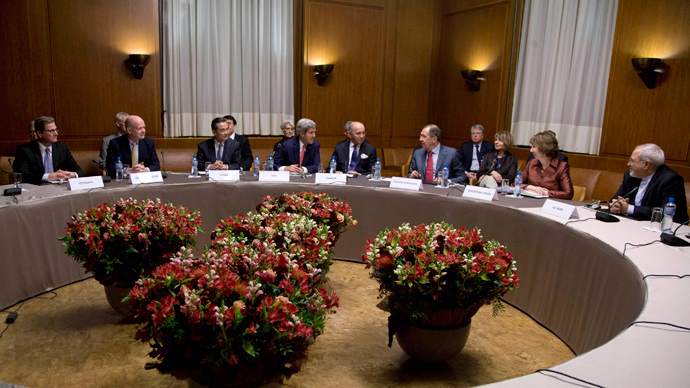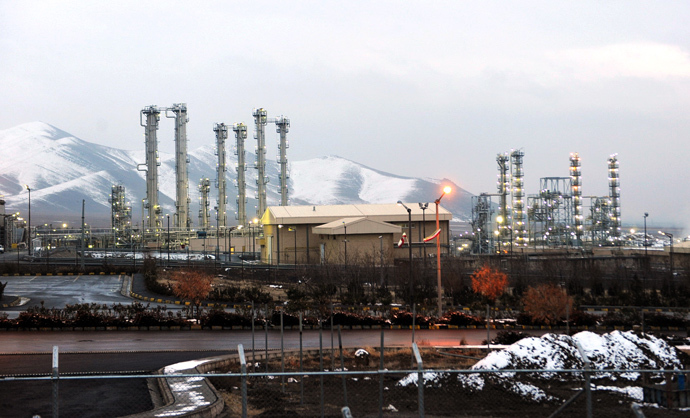Landmark deal 'should dissipate Israel’s concerns of Iranian threat'

Unfettered access by the IAEA to Iranian nuclear facilities, alongside limiting enrichment of uranium to 5 percent should calm Israeli fears, former commander of the British military's chemical defense regiment, Hamish de Bretton-Gordon, told RT.
RT: Do you agree that this is a "victory for diplomacy", as the Russian president put it?
Hamish de Bretton-Gordon: Yes I do, absolutely, I think we have seen some very significant diplomatic action in last few month, with the agreement again led by Russia and the US to rid Syria of its chemical weapons, its weapons of mass destruction and now it looks like the current deal is going to wreck the potential for Iran to develop nuclear weapons program which would have completely destabilized the Middle East and probably the globe, but allowed them to develop their nuclear fuel in the street to power, their power stations, which seems to me the right way to move forward.
Despite Israeli pressure, a historic agreement on the Iranian nuclear program was reached on November 24 at Geneva. P5+1 states acknowledged Tehran’s right to peaceful enrichment and committed to lifting a number of sanctions. As part of the deal Iran committed to halt uranium enrichment to above 5 percent; dismantle equipment required to enrich above 5 percent; refrain from further enrichment of its 3.5 percent stockpile; dilute its store of 20 percent-enriched uranium; limit the use and installation of its centrifuges; cease construction on the Arak nuclear reactor; and provide IAEA inspectors with daily access to the Natanz and Fordo sites.
RT:Iran was allowed to enrich uranium to 5 percent - what does it actually mean?
HB: To make nuclear fuel for power stations you need to enrich uranium or plutonium, and I’ll come back to that, to about 2 percent, but generally the 5 percent is used as the top level. That then allows you to conduct nuclear fission, which is a slow release of nuclear energy by splitting atoms to provide power, huge amounts of power to power homes, etc. In order to produce nuclear fuel for nuclear weapons you need to enrich to 80 percent and above to create a splitting of the atom, at very high rates, very quickly to provide the devastating effect. So basically, by limiting it to 5 percent, in my opinion for the uranium, that would prevent it from being weaponized.
RT:Do you think Iran is actually close to acquiring a nuclear bomb? And does the agreement do enough to remove this threat?
HB: I’ve recently been to Israel and I absolutely understand the position by Minister Netanyahu and the Israelis are taking on this. However, the key to this, and it has been mentioned previously in this piece, is the work of the IAEA who now, from what I understand from the agreement, will unfettered access to all Iran’s nuclear sites, in particular Parchin, which is a military site where it is believed that most of the development work is being done with the containment facility and also hydrogen atom equipment potentially to produce nuclear fuel for nuclear weapons. So they can investigate that, they can investigate other areas. Also Arak, which is heavy water nuclear power station that is being developed using plutonium. So I think the unfettered access of the IAEA to be able to validate and verify these things, the concerns of Israel, although real, should be dissipated. Because unless you can’t enrich uranium or plutonium to a greater than 5 percent you got little chance of developing a viable nuclear weapon.

The statements, views and opinions expressed in this column are solely those of the author and do not necessarily represent those of RT.
The statements, views and opinions expressed in this column are solely those of the author and do not necessarily represent those of RT.












